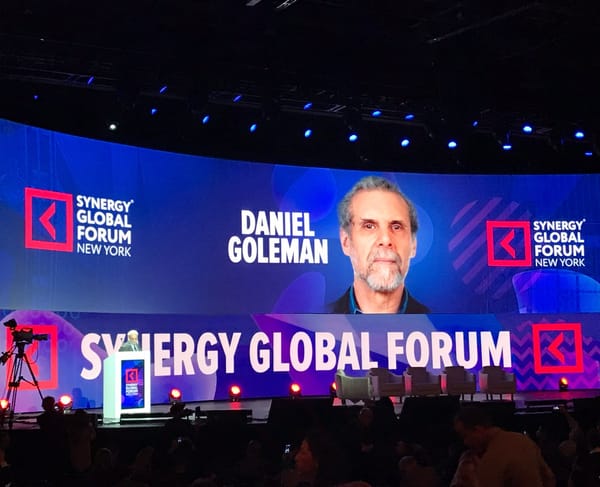Some random thoughts about AI on a Sunday evening
The hype around AI didn’t come overnight. It’s the result of decades of technological progress and converging trends. But in November 2022, OpenAI made it real for everyone.
Most people in tech didn’t see it coming, even if they now want to tell a different story. Big Tech companies reportedly tripled their AI investments after ChatGPT became generally available. As the saying goes, don’t tell me what your priorities are — show me your budgets.
There’s nothing wrong with that. It’s expected. But let’s stay humble. Humans are terrible at predicting the future. What makes me uncomfortable is how many now speak as if they always knew this was coming. That’s just not true.
I’m an optimist by default. It’s hard for me to imagine a future that isn’t better than the present. But I’d be naive to ignore the risks and disruptions that come with AI, especially its impact on industries and jobs. Every wave of transformation creates winners and losers, at least for a while. We need to plan for those left behind. Otherwise, we risk letting AI create a painful, unresolvable gap.
I love AI. I love technology. I’ve always been an early adopter of anything I could get my hands on. But I strongly disagree with the idea that AI is the solution to all our problems. It drives me nuts when I come across statements like, “We’ll deliver an AI-powered application.” Don’t put the solution in front of the problem. Please, don’t.
Eventually, the AI hype will cool down. The FOMO will fade. And we’ll go back to making decisions based on judgment, not on whatever’s hot this week.
Franco, you’re ignoring the power of this.
I don’t think I am. AI, particularly GenAI and robotics, is transforming industries. We now talk more with algorithms than with colleagues or friends. Self-driving taxis exist. Robots are performing surgeries. It’s transformational, no doubt. But the fundamentals remain. We’ve seen this before.
The industrial revolution was transformational. The internet was transformational. AI is transformational.
And just like before, we’ll adapt and move on.

